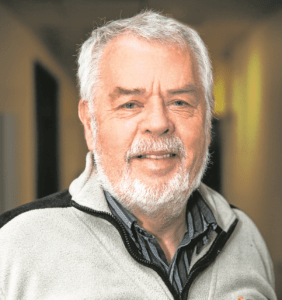Opinion
This Week’s Editorial: The new normal
Ejvind Sandal
This article is more than 3 years old.

(photo: Alfonso Cortés/CIMMYT)
The War in Ukraine is no longer frontpage news in Denmark. But the war is still on and growing in ferocity, as more heavy weapons are being positioned at the front.
The Russians are pounding missiles and artillery into enemy positions; the Ukrainians are waiting for heavy arms to arrive and retaliate. There seems to be no end to it as none of the parties are willing to compromise.
Eventful few years
In the meantime, the rest of the world is trembling. Inflation has reached new records in no time. The food supply to the developing world is logistically in chaos, and energy is in short supply everywhere amidst skyrocketing prices. All that in just a few months since February.
Predictions for the foreseeable future are uncertain to say the least. What is certain is that we are heading towards a general election in Denmark. Within a year we will see if COVID-19, Minkgate, the arrival of the Ukrainian refugees and the downward spiral of Dansk Folkeparti has changed the political landscape.
The political establishment and lots of institutions and NGOs have been on Bornholm singing and dancing as if tomorrow has no dark skies – an indication, perhaps, that all of our current problems are of a passing nature.
But then again, it’s the summer holiday period, when the Danes tend to be carefree and happy regardless of their woes.
Times of the unexpected
Nobody saw the War in Ukraine coming. This was a wake-up call, as we thought that ever-more-reasonable Russia was on the path towards global integration. After all, they hosted the last World Cup.
But then again, we should have learned a lesson from the erratic presidency of Donald Trump. Out of office for a year and five months, he still never fails to amaze us: this time via the Capitol Hill hearings in Washington DC that have recently revealed the lengths he was willing to go to remain in office.
It will be a sad day for democracy at the end of January 2025 if both Trump and Putin are in power. Clearly it’s time for a reboot.
Minds are changing
But while much has changed as a result of all this belligerence – new defence budgets have been drafted in Denmark to the extent they’ll account for 2 percent of GDP eventually – minds have also been altered.
Some 26,000 Ukrainian refugees were received with open arms by a country that has spent 10 years becoming increasingly hostile towards immigrants, refugees or otherwise.
Support for NATO and the EU is growing – not just in Denmark but all over the continent. Just one year ago, the June referendum, and Sweden and Finland’s eagerness to join NATO, would have been as unexpected as the fall of the wall in 1989.
Uncertainty at SAS
Another big question is the future of SAS.
Once the joy and pride of Scandinavia, it now seems that the state-driven enterprise has been bypassed by new business models and SAS has a long way to go to become profitable again.
COVID-19 changed the modus operandi for business travelling and virtual meetings, and now SAS and the pilots’ union have to come to terms face-to-face. That could be ugly.
But in the meantime, have a nice summer.

About
Ejvind Sandal
Copenhagen Post co-owner Ejvind Sandal has never been afraid to voice his opinion. In 1997 he was fired after a ten-year stint as the chief executive of Politiken for daring to suggest the newspaper merged with Jyllands-Posten. He then joined the J-P board in 2001, finally departing in 2003, the very year it merged with Politiken. He is also a former chairman of the football club Brøndby IF (2000-05) where he memorably refused to give Michael Laudrup a new contract prior to his hasty departure. A practising lawyer until 2014, Sandal is also the former chairman of Vestas Wind Systems and Axcel Industriinvestor. He has been the owner of the Copenhagen Post since 2000.










































